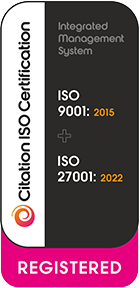If you’re struggling with ketamine addiction, you’re not alone. Ketamine addiction can have significant effects on both your physical and mental health. It can quickly take over your life, affecting your finances, relationships, and overall well-being.
This is why taking the first step towards recovery is so important. This typically begins with detoxification. Some people choose to detox at an inpatient rehab facility or detox centre – however, this isn’t for everyone.
Many people choose to detox from ketamine at home. But how exactly do you detox from ketamine at home? That’s what we’ll be exploring in this blog post. Read on to find out more about ketamine detox, including how to detox from ketamine at home, symptoms you may experience, and how long it takes.
We’ll also be discussing what comes after detox, and how Rehubs can help you turn over a new leaf and overcome ketamine addiction for good.
What is a Ketamine Detox?
Detoxification, or detox, is the process of removing harmful substances from the body. In the case of ketamine addiction, detoxing involves stopping the use of the drug and allowing the body to rid itself of any remaining toxins.
During a ketamine detox, you may experience a range of physical and psychological withdrawal symptoms as your body adjusts to functioning without the drug. These symptoms can vary in severity from person to person, depending on factors such as the severity of your addiction, your metabolism and overall health.
A medical detox is when you are given medication when detoxing from drugs. Detox medication can help to ease the withdrawal symptoms, and make the process a little easier.
The drug detox process aims to break the physical addiction to ketamine but does not address the psychological dependency. This is why therapy and aftercare are so important following detox.
How Long Does A Ketamine Detox Take?
Now you understand what a ketamine detox is, let’s explore the ketamine withdrawal timeline. The detox timeline can vary from person to person. Typically, the acute withdrawal symptoms, where physical symptoms are most intense, can last around 72 hours to several weeks.
However, psychological symptoms, such as cravings and mood swings, can persist for much longer.
Ultimately, the detox process can last anything from 72 hours to several weeks. This can depend on factors such as the intensity of your addiction and the frequency of your drug use.
What Withdrawal Symptoms Should I Expect?
The withdrawal process can be difficult without the right support. This is why many people seek help from medical professionals, who can help you to manage withdrawal symptoms. If you plan on detoxing from ketamine at home, it’s important to be prepared and know what symptoms of ketamine withdrawal to expect.
Withdrawal from ketamine can produce both physical and psychological symptoms. Physical withdrawal symptoms may include:
- Changes in heart rate
- Sweating
- Nausea and vomiting
- Muscle pain and stiffness
Psychological symptoms can include:
- Intense cravings for ketamine
- Mood swings
- Anxiety and agitation
- Difficulty concentrating
When detoxing from home, be sure to seek support from family and friends. We also recommend liaising with a medical professional or addiction specialist beforehand, to help you determine whether this is the best approach for you.
Top Tips for Detoxing From Ketamine at Home
It’s important to note that detoxing from ketamine at home may not be suitable for everyone, especially if you have a severe addiction or underlying medical conditions.
In such cases, seeking professional help from a ketamine rehab or detox centre may be necessary to ensure a safe and successful detox process.
While detoxing from ketamine at home can be challenging, there are steps you can take to make the process more manageable:
Seek Support
When detoxing from home, you must have the right support. Be sure to surround yourself with understanding and supportive people who can offer encouragement and assistance during your detox journey. Detoxing alone can be tough, and having friends or family on hand can help to ease the process.
Stay Hydrated
Detoxification can be tough on your mind and body, so make sure you drink plenty of water. Drinking lots of water to help flush toxins from your system and stay hydrated during the detox process.
Practice Self-Care
Be sure to take care of your physical and emotional well-being throughout the detox process. First of all, make sure you get plenty of rest – give your body a chance to recover. Likewise, eat nutritious foods to fuel your body.
It can also be helpful to engage in activities that can help you relax and relieve stress, such as meditation, peaceful walks or having a relaxing bath.
Keep Busy
Ketamine cravings and withdrawal symptoms can feel all-consuming, so it can be helpful to distract yourself and stay busy. Partake in activities you enjoy such as exercise or spending time with loved ones.
Consider Professional Help
If you find yourself struggling to detox from ketamine at home, or if you experience severe withdrawal symptoms, we recommend seeking professional support. You may benefit from detoxing at an addiction treatment centre as an inpatient or attending a detox clinic to get the extra support you need.
What Comes After Ketamine Detox?
Detoxing from ketamine is just the first step on the road to recovery. Once you have detoxed from ketamine, it’s best to continue with a treatment plan that addresses the psychological issues associated with addiction, including mental health disorders.
There are different therapies used in rehab that can help to treat addiction, such as cognitive behavioural therapy (CBT), group therapy, family therapy, and one-to-one counselling.
Therapy has many benefits when treating addiction – it can teach you effective coping strategies, build your confidence, help you understand the root causes of your addiction and your addiction triggers, and equip you with the skills you need for long-term recovery.
Therapy, support groups, or other addiction treatment services can help to address both the physical and psychological aspects of ketamine addiction.
Some people opt for inpatient rehab when recovering from ketamine addiction. This is when you live in a rehab clinic throughout your course of treatment. Others, however, prefer to attend rehab on an outpatient basis. However, this approach isn’t for everyone – many people are turning toward online rehab after detoxing from drugs.
Begin Your Rehab Journey With Rehubs
At Rehubs, we understand the challenges of overcoming ketamine abuse and addiction – and we are here to help. Our online drug and alcohol rehab services provide the support and guidance you need to begin your journey to recovery from the comfort of your own home.
Our team of experienced professionals is dedicated to helping you achieve lasting sobriety and regain control of your life.
Don’t let ketamine addiction hold you back any longer. Take the first step towards a healthier, happier future by contacting Rehubs today. With the right support and treatment, recovery is possible.







